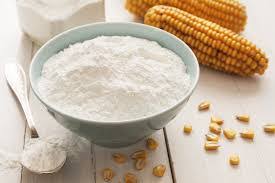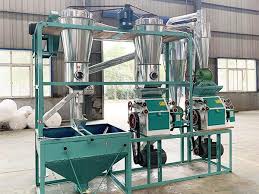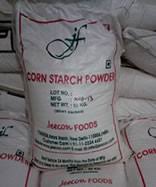![]()
If you’ve landed on this article page, you’re probably searching for a
good business idea—an idea that’s light on the pocket but heavy on
returns, promising both a fulfilling journey and potential profit.
|
How To Start A Lucrative Corn Flour Production and Supply
Business in Nigeria
Corn flour is a fine powder made by grinding dried corn kernels
into a fine consistency. Corn flour production and supply
business involves several steps, including selecting
high-quality corn kernels, cleaning, drying, milling, and
packaging the flour. The quality of the corn flour depends on
the corn variety, the milling process, and the storage
conditions. It is a lucrative business in Nigeria and Africa due
to the high demand for the product in the food industry.
Nigeria has a significant export opportunity for corn flour,
with countries such as Ghana, Togo, and Benin being major
importers of corn flour from Nigeria. Other African countries
such as South Africa, Kenya, Tanzania, United States, Europe,
and Asia also present export opportunities for corn flour
produced in Nigeria.
Corn takes an average of 75 to 100 days to reach maturity,
depending on the variety and growing conditions. A hectare of
land can yield about 3 to 5 metric tonnes of corn, which can
produce 2.5 to 3 metric tonnes of corn flour. The yield can vary
depending on the farming techniques and the quality of the corn
kernels.
Types Of Corn Flour In Nigeria and Africa
There are several types of corn flour that can be used for Corn
Flour Production and Supply Business in Nigeria and Africa.
Yellow Corn Flour: This type of corn flour is made from yellow
corn and has a slightly sweet flavor. It is commonly used in
baking and cooking.
White Corn Flour: This type of corn flour is made from white
corn and has a milder flavor compared to yellow corn flour. It
is also commonly used in baking and cooking.
Blue Corn Flour: This type of corn flour is made from blue corn
and has a slightly nutty flavor. It is often used in tortilla
making and other traditional Mexican dishes.
Masa Harina: This type of corn flour is made from dried hominy
corn that has been treated with an alkaline solution, which
gives it a distinctive flavor and aroma. It is commonly used to
make tortillas, tamales, and other traditional Latin American
dishes.
Cornmeal: This is a coarser grind of corn flour that is often
used in baking and frying. It can be made from yellow, white, or
blue corn.
Cornstarch: This is a very fine, powdery type of corn flour that
is often used as a thickening agent in sauces and soups.
Each type of corn flour has its unique characteristics that make
it suitable for various applications. Producers can choose the
type of corn flour that best suits their production and supply
business needs.
Choose a Business Location: Ideally, set up your corn flour mill
in regions with high corn production, like Benue, Kaduna, Niger,
Taraba, and Bauchi states. Proximity to raw materials is crucial
to minimising costs. Ensure good road access and the
availability of labour.
Determine the production level: Your production capacity depends
on your startup capital and target market. Start small by
milling 500kg to 1 tonne daily, and gradually scale up. Large
mills can handle 5–10 tonnes of corn daily. Start small and grow
steadily.
Get equipment and machinery: Key equipment you need includes
grain cleaners, attrition mills and grinders, hammer mills,
screening machines, sealing machines, and diesel generator sets.
Buy quality machines for high efficiency.
Set up a milling facility: Rent a facility with enough space in
an industrial or commercial location. Install your machinery and
equipment, following safety guidelines. source of utilities like
electricity and water required for operations.
Recruit workers: Hire knowledgeable mill managers and operators,
machine technicians, loaders, cleaners, drivers, and security
staff. Train staff on operating the milling machines and
processes. Offer attractive wages and incentives to retain
workers.
Source Raw Corn Supply:Establish relationships with local corn
farmers or farmer associations to get a steady corn supply. Sign
MOUs clearly specifying prices and delivery schedules. Provide
training and support to farmers to ensure good-quality corn.
Package and Brand Your Product: Invest in attractive packaging
for your corn flour with your unique brand name and logo. Bags
should have labelling details, production and expiration dates,
and a NAFDAC registration number. Good packaging builds customer
confidence.
Market and distribute: Develop distribution channels to get your
packaged corn flour to urban and rural markets. Leverage
wholesale distributors and retail stores. Promote through local
radio, social media ads, and sales vans. Participate in food
exhibitions to create brand awareness.
Bakers and confectioners: Bakers and confectioners are one of
the target customers for corn flour in Nigeria and Africa. They
use corn flour in making pastries, cakes, biscuits, and other
baked products.
Food manufacturers: Corn flour is also used by food
manufacturers in making a variety of food products like
breakfast cereals, snack foods, and baby foods.
Restaurants and hotels: Restaurants and hotels are another
target market for corn flour in Nigeria and Africa. Corn flour
is used to make various dishes like corn fufu, cornmeal
porridge, and other traditional African meals.
Individuals: Corn flour is also used by individuals in making
home-cooked meals like cornbread, corn pudding, and various
stews.
Retailers and supermarkets: Retailers and supermarkets are
target customers for corn flour in Nigeria and Africa. They
purchase corn flour in bulk to sell to customers for home use.
Get our training guide on how to Start a lucrative Corn Flour Production and Supply Business In Nigeria You will discover a comprehensive manufacturing plan template, replete with in-depth explanations of the production process, the required machinery, and raw materials used in production. The body of this work is formed from consulting experienced and relevant people running the Corn Flour Production and Supply Business, to get first-hand information about the success secrets and marketing strategies deployed to achieve business success.
|







